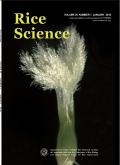水稻代谢工程在功能性代谢物生产中的应用
IF 6.1
2区 农林科学
Q1 AGRONOMY
引用次数: 0
摘要
为了提高水稻的营养和功能价值,许多生物技术方法都集中在代谢工程上,以解决营养缺乏问题,并生产缺乏或自然少量存在的对健康有益的化合物。一个突出的例子是“黄金大米”,它经过基因改造,可以积累β-胡萝卜素,从而在饮食摄入有限的地区对抗维生素A缺乏症。科学家们一直在用各种专门的代谢物对大米进行生物强化,包括萜类、类黄酮、非类黄酮多酚、甜菜素、维生素和氨基酸。这篇综述探讨了研究人员利用特定的途径和遗传修饰来增强水稻中目标代谢物的积累。它全面总结了水稻代谢工程的关键策略和研究趋势,展示了水稻如何通过其谷物、叶片和细胞利用其作为多功能宿主系统的优势,超越其作为主食的传统角色,转变为生产具有工业价值的化合物的战略作物。此外,我们强调将代谢工程与合成生物学和大数据驱动的计算建模相结合的潜力,特别是通过人工智能和机器学习,作为未来有希望的研究方向。本文章由计算机程序翻译,如有差异,请以英文原文为准。
Metabolic Engineering in Rice for Functional Metabolite Production
To improve the nutritional and functional value of rice, numerous biotechnological approaches have focused on metabolic engineering to address nutritional deficiencies and produce health-beneficial compounds that are either absent or naturally present in low amounts. A prominent example is ‘Golden Rice’, which has been genetically modified to accumulate β-carotene to combat vitamin A deficiency in regions with limited dietary intake. Scientists have been continuously biofortifying rice with various specialized metabolites, including terpenoids, flavonoids, non-flavonoid polyphenols, betalains, vitamins, and amino acids. This review explores the specific pathways and genetic modifications utilized by researchers to enhance the accumulation of targeted metabolites in rice. It comprehensively summarizes key strategies and research trends in rice metabolic engineering, demonstrating how rice can be transformed into a strategic crop for producing industrially valuable compounds beyond its traditional role as a staple food by leveraging its advantages as a versatile host system through its grains, leaves, and cells. Furthermore, we highlight the potential of intergrating metabolic engineering with synthetic biology and big data-driven computational modeling, particularly through artificial intelligence and machine learning, as promising future research directions.
求助全文
通过发布文献求助,成功后即可免费获取论文全文。
去求助
来源期刊

Rice Science
Agricultural and Biological Sciences-Agronomy and Crop Science
CiteScore
8.90
自引率
6.20%
发文量
55
审稿时长
40 weeks
期刊介绍:
Rice Science is an international research journal sponsored by China National Rice Research Institute. It publishes original research papers, review articles, as well as short communications on all aspects of rice sciences in English language. Some of the topics that may be included in each issue are: breeding and genetics, biotechnology, germplasm resources, crop management, pest management, physiology, soil and fertilizer management, ecology, cereal chemistry and post-harvest processing.
 求助内容:
求助内容: 应助结果提醒方式:
应助结果提醒方式:


